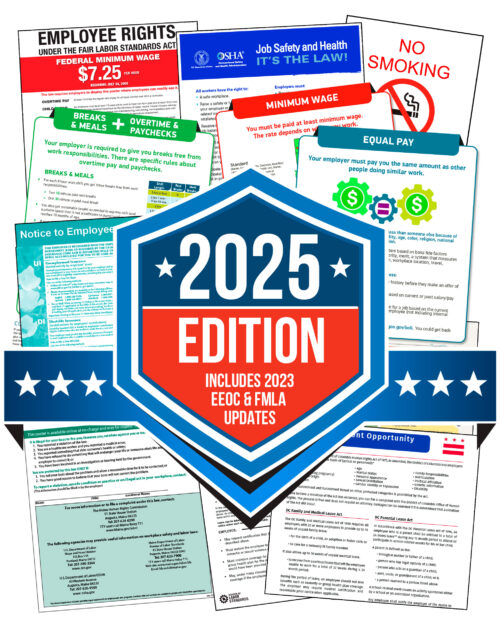Electronic poster is not a substitute for standard work environment.
According to the U.S. Department of Labor employer may use electronic files to post labor law notices as a substitute to the hard copy poster if employees work remotely, receive information from the employer via electronic means, have access to digital posters at all times.
Digital labor law posters are electronic versions of the mandatory posters required by federal and state labor laws. They can be accessed and displayed on a computer, tablet, or other electronic device. By using digital posters, employers can save time and money on printing, shipping, and updating traditional paper posters.
Electronic posters eliminate the need for printing, shipping, and updating traditional paper posters, which can be costly.
